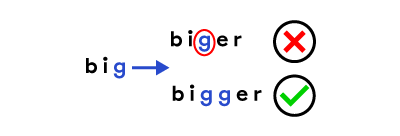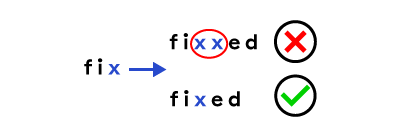A consonant is a letter representing a sound.
The consonants are the letters:
|
b |
c |
d |
f |
g |
h |
j |
|
k |
l |
m |
n |
p |
q |
r |
|
s |
t |
v |
w |
x |
y* |
z |
*y is sometimes also used as a vowel.
When spelling a word, some consonants are doubled.
The last consonant of a word can sometimes be doubled.
The CVC rule helps us to remember which consonants are doubled and which ones aren’t.
-
The last consonant of a word is doubled when it follows the CVC rule.
-
CVC means a word’s last 3 letters are a consonant, a vowel and a consonant.
-
The CVC rule indicates if a consonant is doubled when adding letters to the end of a word.
|
Letters are added to word in: |
Letters added: |
Words ending in CVC: |
Become: |
|
the simple past |
-ed |
plan |
planned |
|
-ing |
fit |
fitting |
|
|
-er |
big |
bigger |
|
|
-est |
sad |
sadder |
Consonants are doubled when a word meets certain conditions.
Conditions are different depending if a word is:
-
short — words with one syllable
-
long — words with two syllables or more
Consonants are doubled when the word:
-
ends in CVC
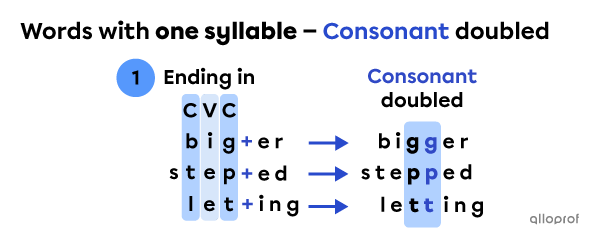
Consonants are doubled when the word:
-
ends in CVC
-
is stressed* on its last syllable
*The stress is the emphasis placed on a syllable when pronouncing a word.
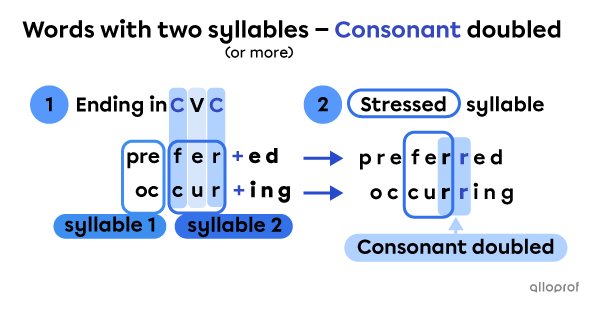
Consonants are not doubled when certain conditions aren't met.
Consonants are not doubled when a one-syllable word:
-
ends in VVC
-
ends in VCC
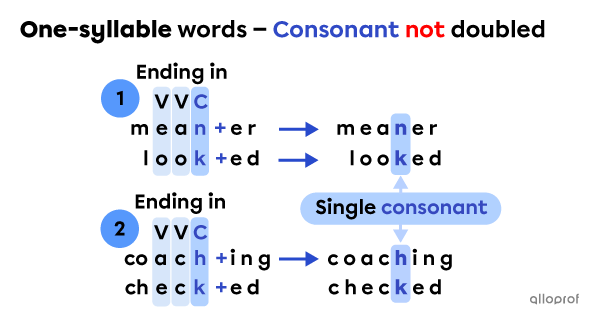
Consonants are not doubled when a two-syllable (or more) word:
-
ends in CVC
-
is stressed* on any syllable but not the last one.
*The stress is the accentuation placed on a syllable when pronouncing a word.

Some words are spelled with double consonants and some with a single one.
This rule helps to figure out which ones are.
Words are spelled with double consonants in the middle when they:
-
have 2 syllables
-
include a short* vowel in the first syllable
-
include a vowel in the second syllable
*Short vowels have a short sound, as opposed to long vowels that have a long sound.
|
Double consonants |
Single consonant |
||
|
Short vowels: |
Sound like: |
Long vowels: |
Sounds like: |
|
tapping |
[t-ah-ping] |
tape |
[t-AY-p] |
|
written |
[r-ih-ten] |
write |
[r-AYE-t] |
|
sitting |
[s-ih-t-ing] |
site |
[s-AYE-t] |
|
cutting |
[c-uh-t-ing] |
cute |
[k-YOU-t] |
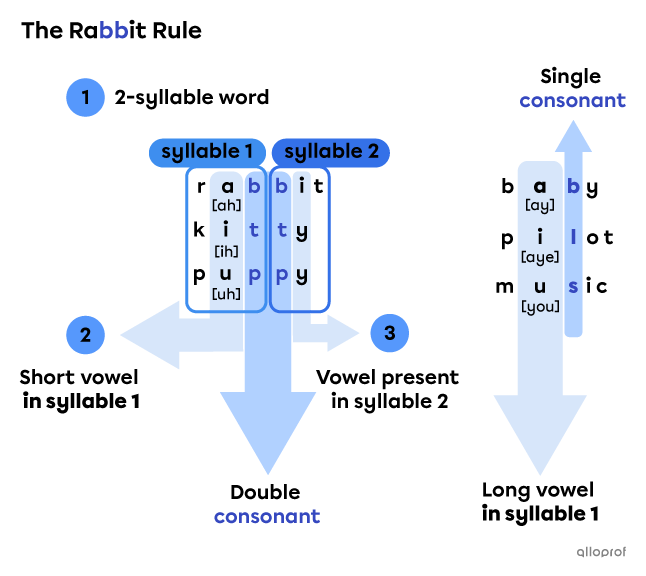
Many words end in double consonants.
Here are some guidelines to help figure out which ones.
Words that end in double consonants:
-
have 1 syllable
-
contain a short vowel
-
end in ss, ll, ff or zz
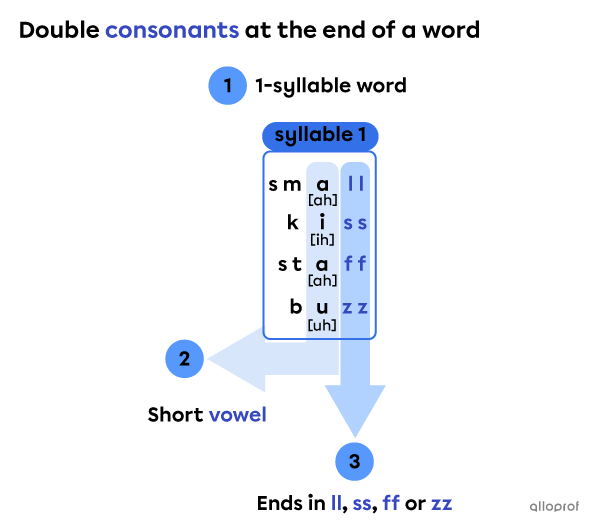
Words ending with a silent -e usually take a single consonant.
The silent -e at the end of a word does not make a sound.
Words only take a single consonant when they:
-
end in a silent -e
-
contain a long vowel in the previous syllable
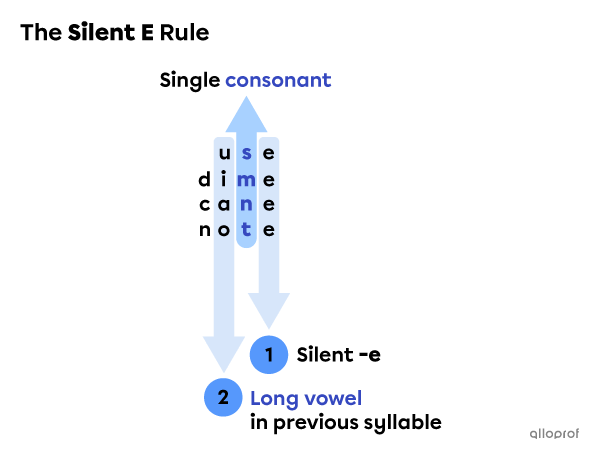
Some consonants are never doubled.
Those consonants are:
|
Consonant |
Examples: |
||
|
h |
ahead |
behave |
rehearse |
|
j |
ajar |
Cajun |
hijack |
|
q |
liquid |
plaque |
equal |
|
v |
give |
avoid |
above |
|
w |
away |
tower |
blowing |
|
x |
axe |
exact |
flexing |
|
y |
staying |
enjoying |
player |
